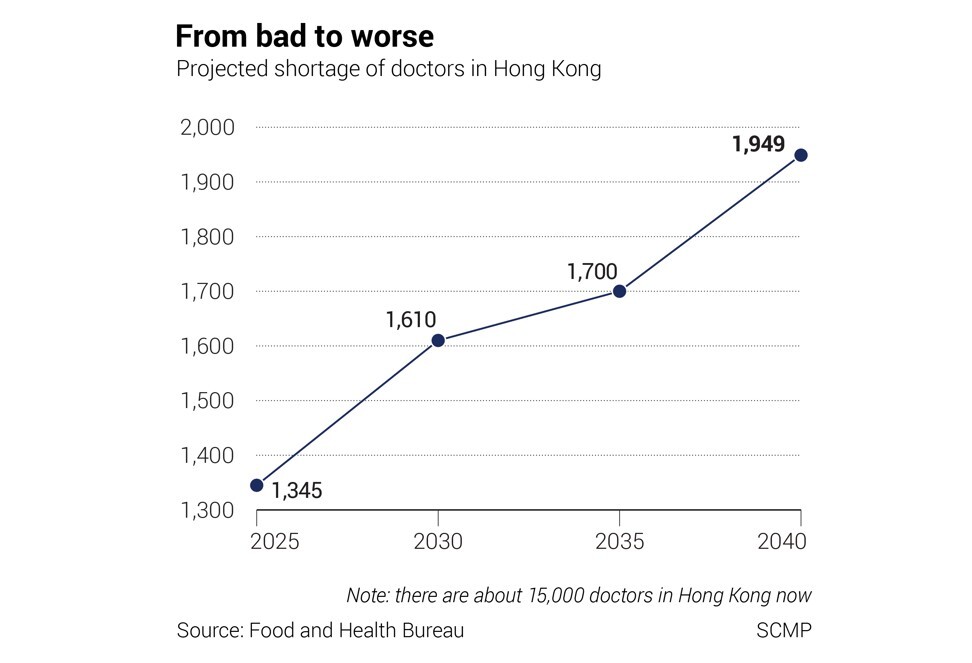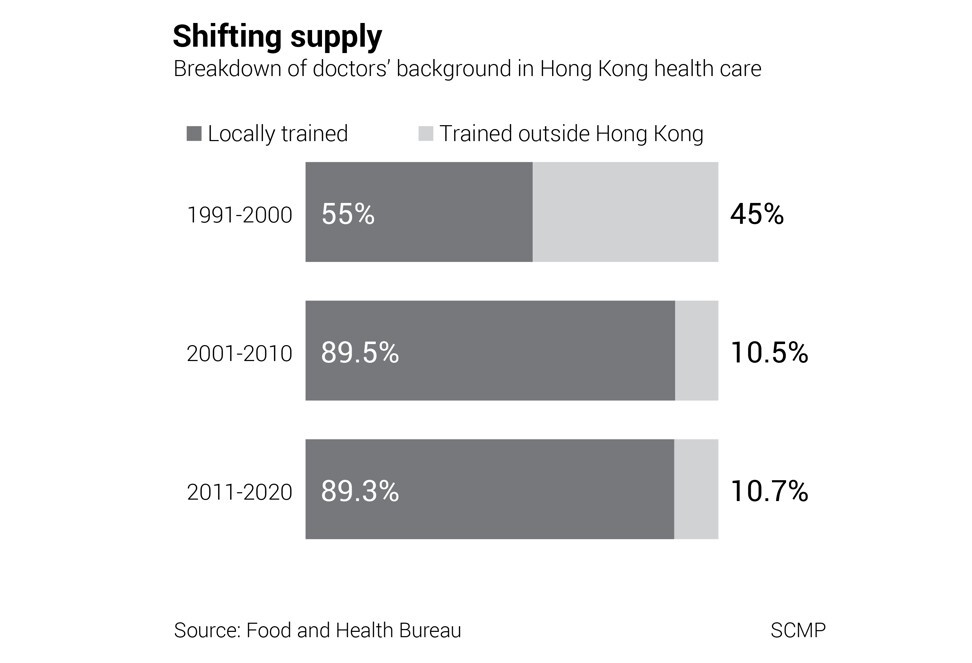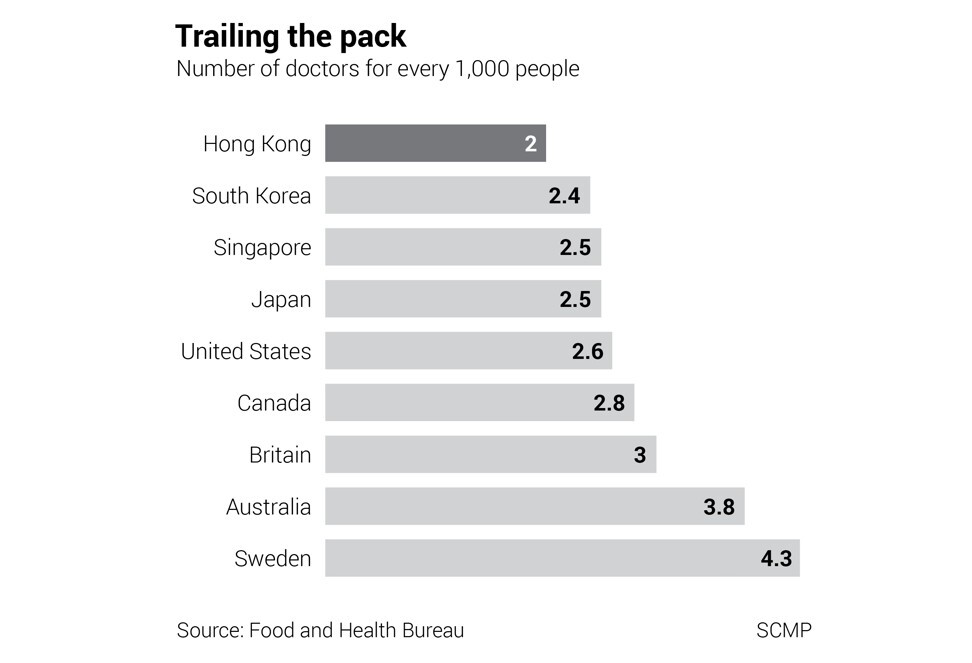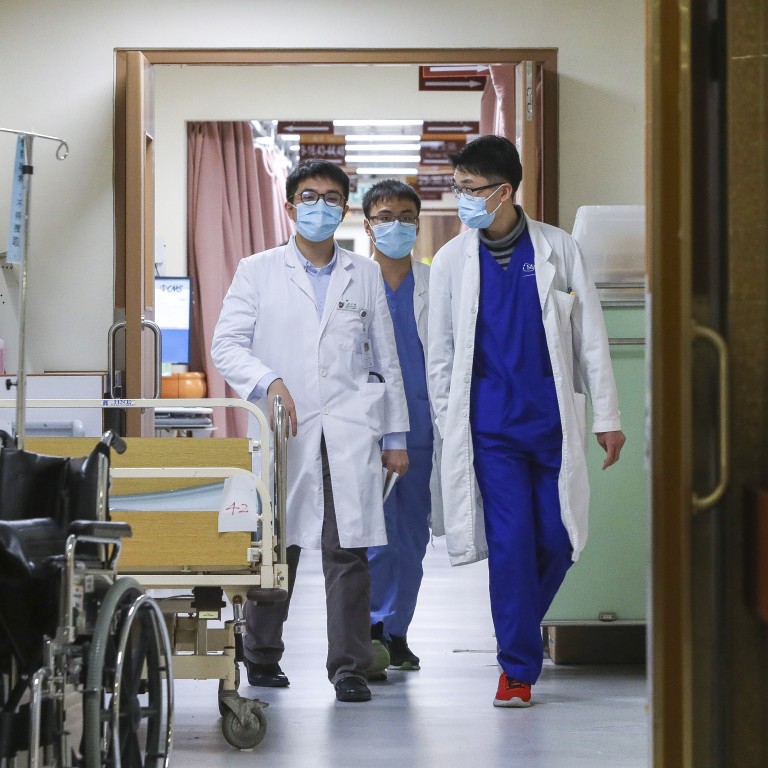
Hong Kong facing dire doctor shortage, health minister warns as legislature set to weigh overseas hiring bill
- City’s leader to choose as many as four of 10 members on committee tasked with deciding a list of recognised medical schools
- The government will present the controversial bill to the legislature on June, health chief says
Thousands of doctors practising outside Hong Kong will be allowed to return and work in their hometown without taking the local licensing exam under a proposal the legislature will scrutinise next month, the health minister has revealed as she warned of a “severe shortage” in the health care sector.
With only about 15,000 doctors in the city, a failure to adopt the hiring framework would result in 1,610 fewer doctors than what would be needed by 2030, with the figure rising to 1,949 by 2040, Secretary for Food and Health Professor Sophia Chan Siu-chee said on Tuesday.
Under the detailed proposal submitted to the Legislative Council, the city’s leader will choose as many as four of 10 members on a committee tasked with deciding a list of outside medical schools recognised under the scheme. The list is expected to be made available next year at the earliest.
“Hong Kong is facing a serious shortage of doctors,” Chan said. “The shortage will continue to worsen.”
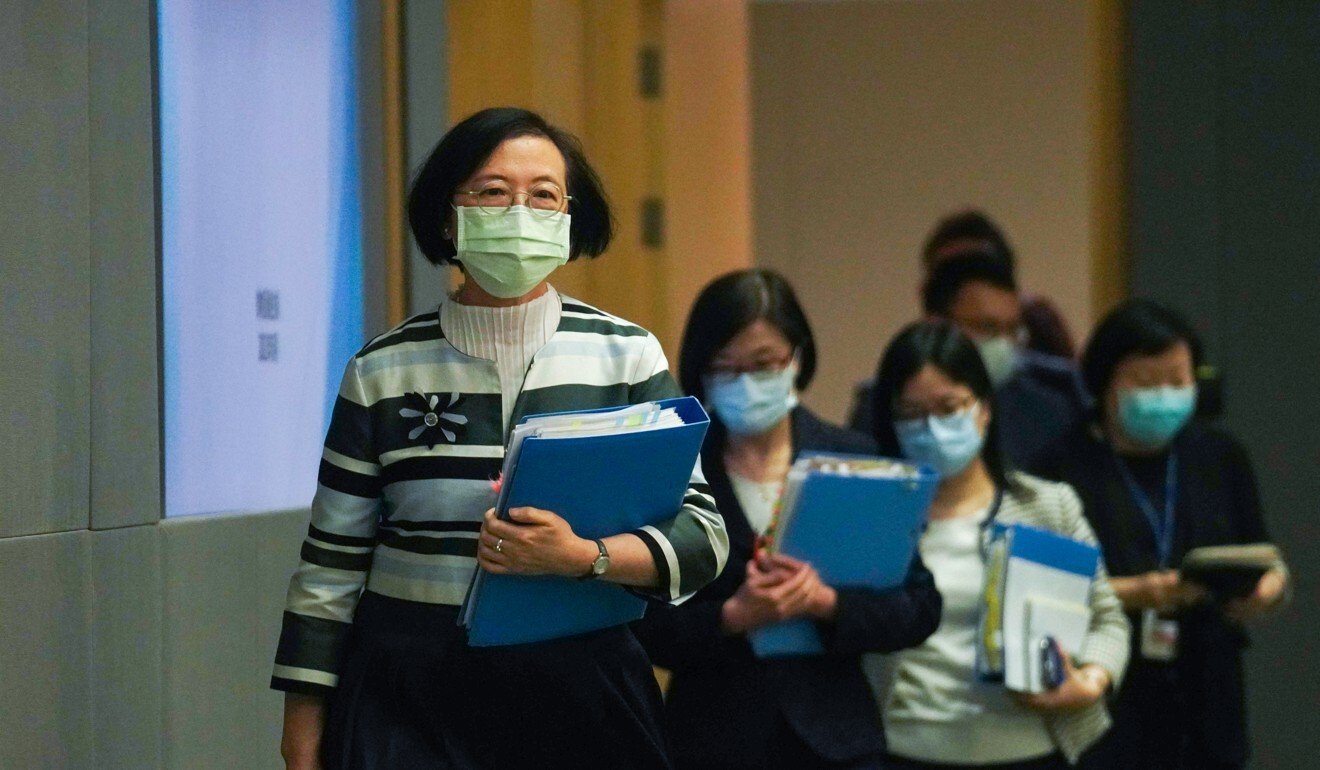
The Hospital Authority supported the proposal, while an advocacy group that pushes for greater patient rights said more doctors would shorten the wait to see specialists. But some local doctors remain sceptical of the plan and stressed the licensing exam was essential to ensure that all practitioners were capable.
Chan noted Hong Kong had just two doctors for every 1,000 residents, a ratio worse than places such as Singapore, Canada and Japan. Simply increasing the number of local medical students could not close that gap, she said, adding the existing shortage meant the average wait for an initial appointment with a specialist in public clinics ranged from 31 weeks to 133 weeks.
She estimated that Hong Kong doctors practising elsewhere numbered in the thousands and conceded it was difficult to say exactly how many would eventually return. The minister added that the government would present the bill to Legco on June 2.
Controversial plan to tackle Hong Kong’s doctor shortage endorsed
Under the proposal, eligible doctors must be permanent residents, graduates from a list of recognised medical schools, and already registered to practise outside Hong Kong. They will then need to work in the city’s public health care system for at least five years after obtaining their specialist qualifications.
If a doctor has not yet started a specialist training overseas when they apply under the scheme, they will need to spend at least 11 years completing training and fulfilling the minimum required duration of service in the public sector.
At the end of that period, the doctors can obtain full registration in Hong Kong without the need to pass the local licensing exam and have the option of working in the private sector.
The 10-member committee, consisting of health officials and educators, will draw up the list of recognised medical schools of “quality comparable” to their two local counterparts.
Chief Executive Carrie Lam Cheng Yuet-ngor would appoint at most four of those members, including three chosen from the Medical Council.
The administration’s proposal, officially presented on Tuesday, reiterated that officials expected the number of recognised medical schools to be capped at 100.
“As a matter of principle, the medical qualifications awarded by non-local medical schools should be broadly comparable to those awarded by the University of Hong Kong and Chinese University,” the Food and Health Bureau said in the paper submitted to Legco.
“With reference to the information available, we expect that the number of recognised medical qualifications will unlikely exceed 100.”
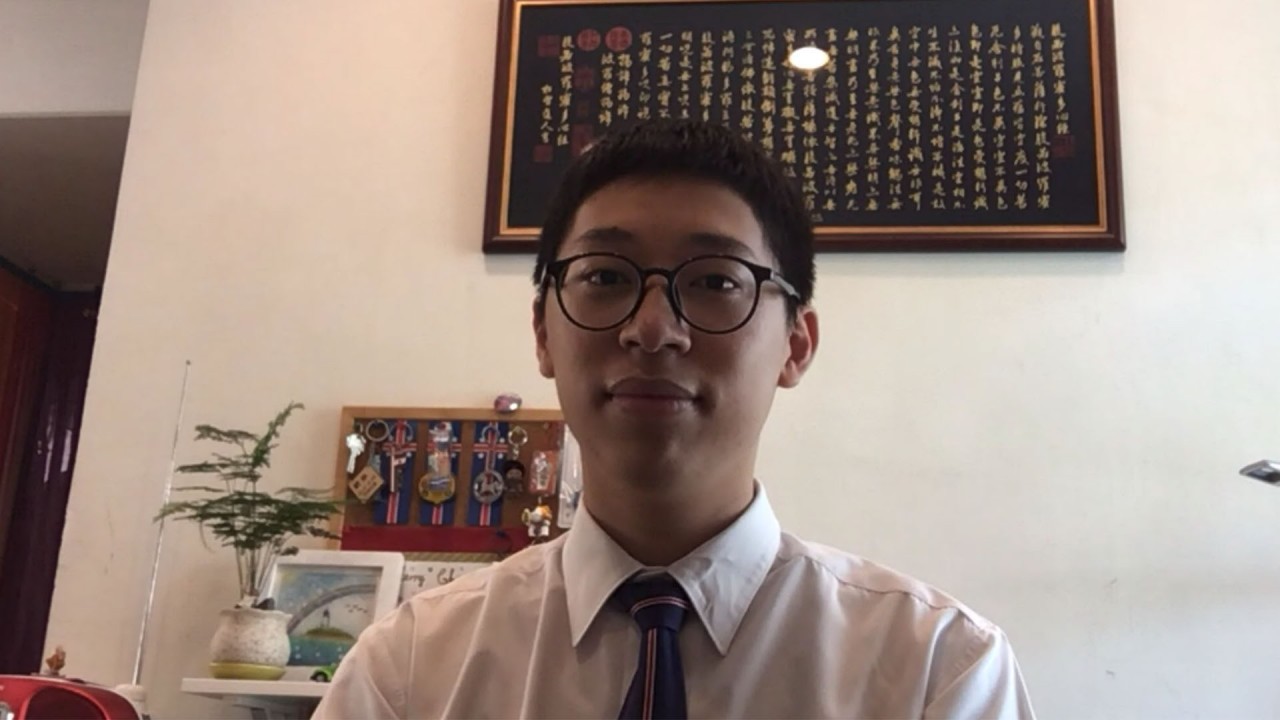
02:36
Top score in Hong Kong university entrance exam moves pupil closer to dream of becoming a doctor
The medium of instruction, curriculum of the medical programmes and the international rankings of the non-local schools would also be considered.
Asked whether mainland Chinese medical schools would be on the list, Chan said their inclusion would be up to the new committee to decide.
While English is the primary language used by the city’s doctors for work, such as writing medical records and prescribing medication, a spokesman for the Food and Health Bureau said some notable schools on the mainland also taught medicine in English.
There are currently two ways for doctors trained outside Hong Kong to practise in the city. Those who hope to obtain full registration and work in either the public or private sectors must pass a licensing exam and complete an internship, normally of six months to a year.
The other option is through the limited registration scheme, under which they can skip the licensing exam but must work in the public sector, meaning with the Hospital Authority, Department of Health or the medical schools at the University of Hong Kong and Chinese University.
The percentage of locally trained doctors in Hong Kong was generally higher than the rate found in other developed economies, a bureau spokesman said.
Only 8 per cent of doctors were educated overseas and had gained their registration through the local licensing exam. Another 15 per cent were doctors whose qualifications from Commonwealth countries were automatically recognised before September 1996. By comparison, about a quarter of doctors in Canada were overseas-trained, while the figure was 29 per cent in Britain and 42 per cent in New Zealand, he said.
Tim Pang Hung-cheong, a patients rights advocate with the Society for Community Organisation, supported the proposal and called for criteria to even be loosened.
The requirement that the doctors need to be permanent residents could restrict the number of applicants, he said.
Even locally-trained doctors do not stay in the public sector for the long run
Alex Lam Chi-yau from Hong Kong Patients’ Voices also expressed concerns that the scheme would not attract enough doctors due to the rule.
Medical Association president Dr Gabriel Choi Kin said that while as many as 100 doctors might join the scheme, most would probably go into the private sector after meeting all the requirements.
“Even locally-trained doctors do not stay in the public sector for the long run,” Choi said. How can you expect non-locally-trained doctors to stay?”
He also said the process for selecting schools lacked transparency.
The president of the Hong Kong Public Doctors’ Association, Dr Arisina Ma Chung-yee, said she opposed allowing non-locally trained doctors to work in the city without first taking the licensing exam.
“Some of them may be very good doctors. But without an exam, it would be very hard to assess their abilities fairly,” she said.
Chan reiterated that the proposal was not bypassing the Medical Council, as any registration and regulation of doctors would need to go through the watchdog eventually.
Liberal Party lawmaker Tommy Cheung Yu-yan urged the government to consider relaxing the requirements that only doctors who graduated from a list of selected medical schools would be allowed to work in Hong Kong. He believed that hundreds would eventually come and work in the city.



